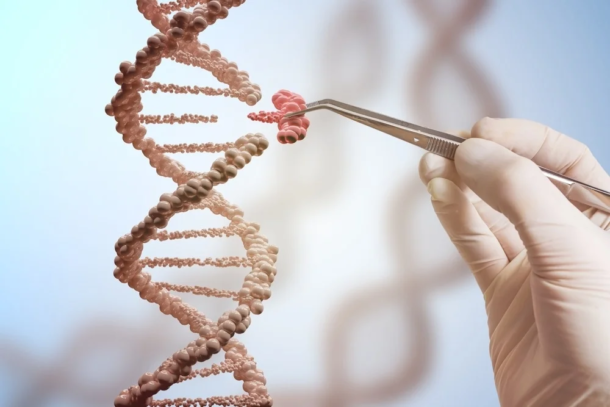Introduction: Human and medical genetics is a captivating and rapidly evolving field of science focusing on the DNA code, genotypes, the functional consequences due to the disruption of the same, phenotypes, disease mechanisms and ultimately the cure of the genetic diseases. With the current and improved understanding, the human genome is been continuously deciphered unlocking its secrets to address various health conditions and thereby shaping the future of medicine. Some of the key points addressed in this domain include the following:
I. DNA sequencing: Understanding the sequence of DNA: Deoxyribonucleic acid (DNA) is a double-helix structure encoding the genetic instructions for building and maintaining living organisms. Geneticists meticulously study the DNA sequence to analyze and interpret the unique combination of genes that makes each individual distinct and how a defective DNA sequence can make an improper protein and thus lead to a disease.
II. Genes: The functional units of DNA which encode for proteins and thus play a pivotal role in determining our traits, from eye color to susceptibility or cause certain diseases. Medical genetics seeks to unravel the complex interplay between genes, the functional pathways which they are a part of, environmental and intergenic interactions and its consequences on health and disease.
III. Hereditary Diseases: Navigating the Genetic Landscape: Some conditions are directly linked to alterations in the sequences of specific genes and are passed down through generations. Single gene disorders including cystic fibrosis, Huntington’s disease, and sickle cell anemia, are a focal point of medical genetics amongst others. Advances in genetic testing empower individuals to assess their risk of inheriting these conditions, facilitating informed decisions about family planning and proactive healthcare measures.
IV. Bioinformatics: Understanding, deciphering and interpreting the genome, proteome, transcriptome could not be possible without the involvement of informatics and application of artificial intelligence based tools and software. With this emerged another promising and evolving field of bioinformatics.
V. Personalized Medicine: Tailoring Treatment to Individuals: Medical genetics allows for the customization of treatment plans based on an individual’s genetic makeup. Pharmacogenomics, for instance, tailors drug prescriptions to a patient’s genetic profile, optimizing efficacy and minimizing adverse effects. This paradigm shift holds the promise of more precise, effective, and patient-centered healthcare. This concept shows a promising future,
VI. Ethical Considerations and Genetic Counseling: As our ability to decipher the genetic code expands, ethical considerations come to the forefront. Genetic counseling plays a crucial role in helping individuals make informed decisions about genetic testing, family planning, and medical interventions. Addressing privacy concerns, the potential misuse of genetic information, and the psychological impact of genetic testing are paramount in ensuring the responsible application of medical genetics.
VII. The Future: CRISPR and Beyond: The emergence of revolutionary technologies, such as CRISPR-Cas9 gene editing, opens new frontiers in medical genetics. While the prospect of editing the human genome raises ethical dilemmas, it also holds immense potential for treating genetic disorders at their roots.
Conclusion: Medical genetics, a multifaceted discipline, illuminates the interconnectedness of our genes, health, and well-being. From unraveling the mysteries of hereditary diseases to pioneering personalized medicine, the field continues to evolve, offering unprecedented insights into the human condition. As we navigate the ethical landscapes and embrace emerging technologies, the journey into medical genetics promises not only a deeper understanding of our genetic code but also a transformative impact on the landscape of treatment of such previously know “untreatable disease”.

